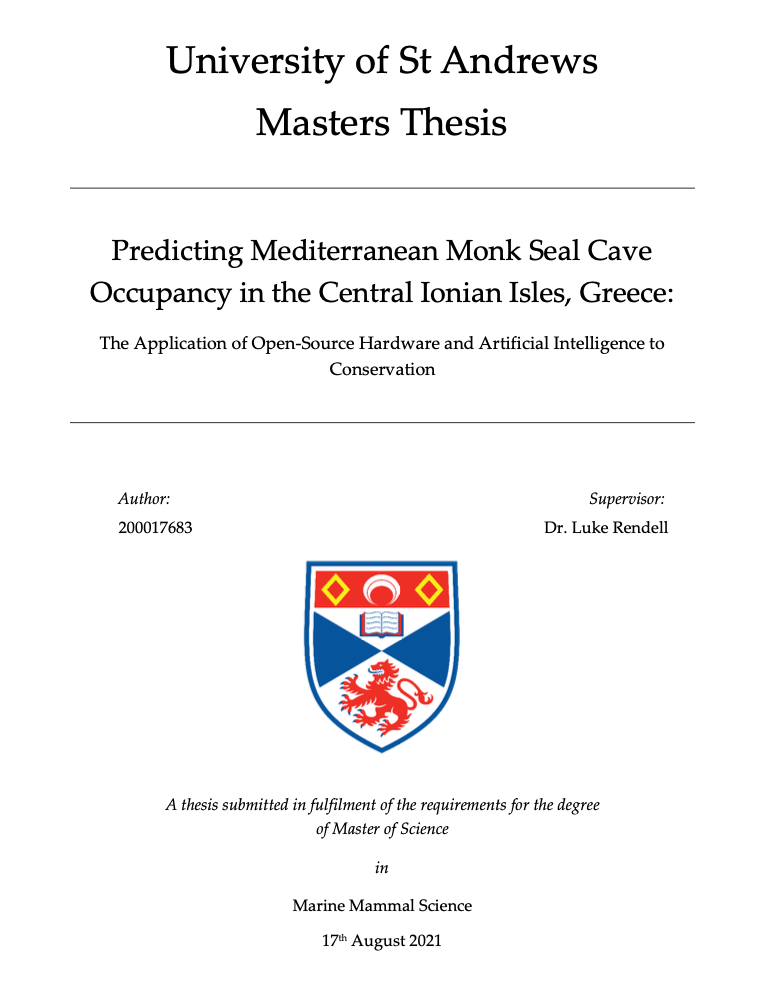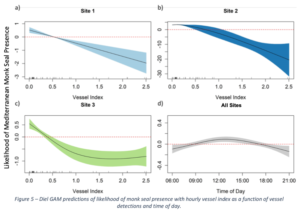
In August of 2021, Hollie London published her Master Thesis at the University of St Andrews, Scotland. Titled “Predicting Mediterranean Monk Seal Cave Occupancy in the Central Ionian Isles, Greece – The Application of Open-Source Hardware and Artificial Intelligence to Conservation“, the 169 pages-long paper based its analysis on data collected in 2019 by the Octopus Foundation’s monk seal project.

The thesis concludes that “instrumentation built from open-source hardware and artificial intelligence technologies can play a role in the monitoring of endangered pinnipeds. Without the use of low cost open-source hardware for autonomous data collection, the collection of a dataset as large as the one in this study, with minimal disturbance to an endangered species, would not have been possible. Additionally, artificial intelligence to automate vessel detections proved essential to classify vessel presence within time constraints. Secondly, diel and seasonal trends of Mediterranean monk seal cave presence in the central Ionian Isles, Greece were investigated through Generalised Additive Modelling. Thirdly, vessel presence was determined to be a significant predictor of monk seal cave presence at both diel and seasonal scales, despite sources of uncertainty within this study. Recommendations for the conservation management of Mediterranean monk seals in the Central Ionian Islands were suggested, as well as recommendations and improvements for further study.”
 We wish to thank Hollie London, Luke Rendell and the University of St Andrews for helping us emphasize valuable information for the monk seal preservation out of the vast amount of data collected for this project.
We wish to thank Hollie London, Luke Rendell and the University of St Andrews for helping us emphasize valuable information for the monk seal preservation out of the vast amount of data collected for this project.
Click here to read/download the full Master Thesis: http://octopusfoundation.org/wp-content/uploads/2021/10/2021-Master-Thesis-22Predicting-Mediterranean-Monk-Seal-Cave-Occupancy-in-the-Central-Ionian-Isles-Greece22.pdf
